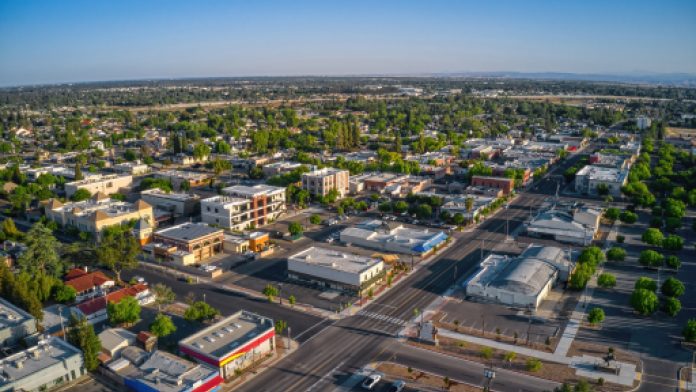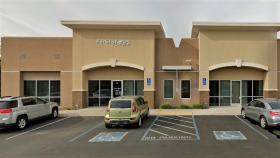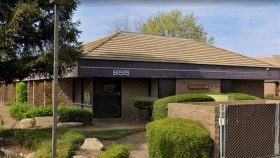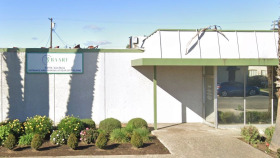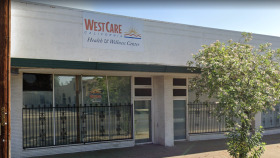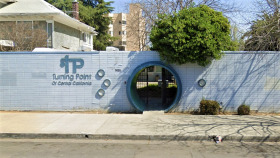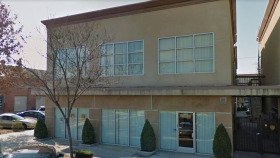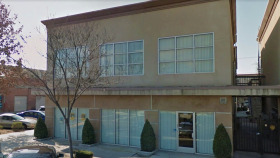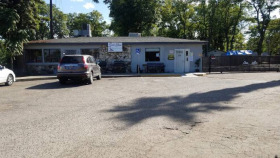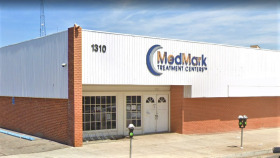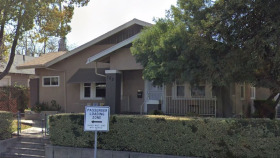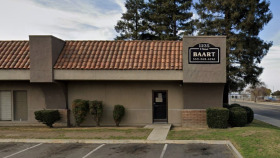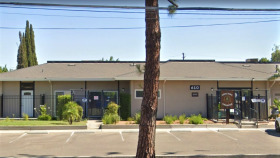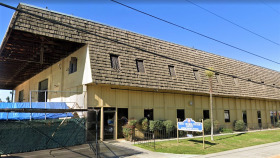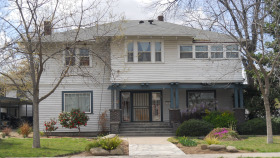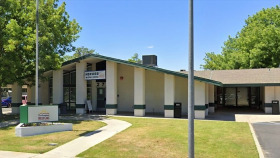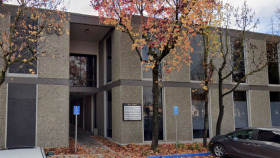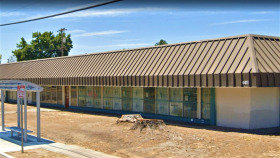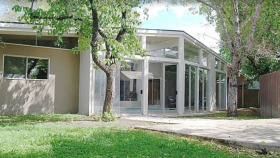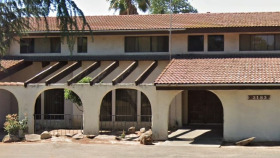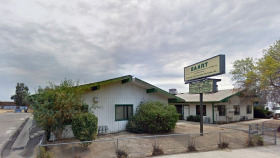Drug and Alcohol Abuse Stats in Clovis
Clovis is in Fresno County, which has some alarming statistics on drug and alcohol use among the youth population. Here are some of the statistics for Fresno County:1
51% of black residents and 39% of adults aged 25 to 39 reported binge drinking.
In 2011, 43% of car accidents involved an alcohol-impaired driver.
While these statistics may seem daunting, quality care does exist in many drug rehabs in Clovis. The city offers several options of treatment types and costs so you can find what is best for you.
Levels of Substance Abuse Care
Multiple levels of care exist for addiction treatment. Some California residents require all levels of care during their journey to recovery, while others receive only the less intensive options.
Medical Detox
Detox is the process of removing drugs or alcohol from your system, safely and comfortably, in a supervised medical setting. Many people choose a medical detox program to prevent severe withdrawal symptoms. This is often the first step in the treatment process, completed before transitioning into formal treatment services.
Inpatient Drug and Alcohol Rehab
Inpatient or residential treatment involves living at a rehab facility to receive 24/7 care. A combination of treatment interventions is provided, including individual and group therapy, nutritional counseling, and medication.
Partial hospitalization programs (PHPs): PHPs allow California residents to live at home while attending treatment at a hospital. They often receive many of the same treatment as inpatient care, but can return home during non-treatment hours.
Intensive Outpatient Programs (IOPs): A step down from a PHP, IOPs allow California residents to attend counseling several days each week, while spending the rest of their time at home, working, or fulfilling other obligations.
Standard Outpatient: As the least intensive treatment option, standard outpatient care is appropriate for California residents who are highly motivated and have a strong support system. It involves just one or two hours of treatment per week.
Relapse Prevention
Aftercare, or relapse prevention, provides ongoing support after a rehab program is complete. Aftercare may include 12-step groups, non-12-step groups like SMART Recovery, ongoing therapy, sober living homes, and more.
How to Pay for Alcohol and Drug Rehab in Clovis
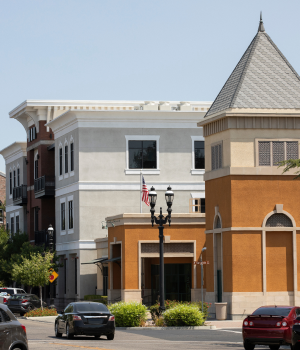 Alcohol rehabs in Clovis vary greatly in costs depending on the type of treatment center you visit. Treatment options range from short-term outpatient to long-term inpatient programs. Other factors that will determine your costs include:
Alcohol rehabs in Clovis vary greatly in costs depending on the type of treatment center you visit. Treatment options range from short-term outpatient to long-term inpatient programs. Other factors that will determine your costs include:
- Whether they offer specialized programs catering to LGBTQ+ or military populations
- How long you stay in treatment
- The types of amenities available at the center
- What type of insurance you have
- If the center offers free care or financial assistance
Free Rehab
If you are searching for “Clovis alcohol rehabs near me,” you will find a range of centers, from free to requiring insurance or private payment. Free treatment is available through state-funded rehabs. These centers receive money from the government that allows them to offer treatment at no cost to you if you qualify.
Aside from state-funded rehab centers, many places also have grants or scholarships available to cover the cost of care. These can be funded through government programs and private donors.
Some free drug rehab centers near Clovis include:
- Central Valley Indian Health Outreach
- Salvation Army Fresno Adult Rehabilitation Center
- Fresno County Department of Behavioral Health
Check with a staff member at any treatment center to ask about free care, sliding-scale payments, or discounts.
Private Insurance
Most Clovis alcohol and drug rehabs will accept insurance providers such as Blue Cross Blue Shield, Cigna, or others. Insurance uses ways to help share healthcare costs with you. It may offer co-pay rates, co-insurance percentages, and out-of-pocket maximums that cap your spending on treatment.
Check with your insurance provider to find out more about your specific plan and what services it covers.
Medicare and Medi-Cal
You may also be eligible for government-funded insurance programs such as Medicare or Medicaid.
If you are an American citizen over the age of 65, you can enroll in Medicare. The following treatments are covered by this insurance plan:4
- Addiction treatment for opioid use
- Inpatient and outpatient rehab services
- Substance abuse screenings
- Partial hospitalization programs
- Medication-assisted treatment for addiction
- Group and individual therapy sessions
Medi-Cal is another program that is partially funded by the federal government and additionally by the state government for individuals and families with low incomes. It covers most mental health services as Medicare does, including:5
- Behavioral therapies
- Medication-assisted treatment (MAT) for FDA-approved medications
- Substance abuse treatment for youth
- Inpatient and outpatient services
- Intensive outpatient programs (IOP)
- Detox
Additional Clovis, California Payment Options
Private Insurance
Every insurance provider in the U.S. is required by law to provide at least some coverage for mental health and substance abuse treatment. California residents should contact their provider to confirm specific coverage provided by their carrier, including applicable copays.
Medi-Cal
Medi-Cal is California’s Medicaid program. Funded by federal and state taxes, this program pays for medical services for children and adults who have limited income. To qualify for Medi-Cal, California residents must meet income requirements and be one of the following: pregnant, responsible for a child under 21 years old, blind, disabled or a disabled family member, or 65 years or older.
California Medicare
California Medicare is a government program providing coverage to residents who are over the age of 65 or who have end-stage renal disease. California residents can use Medicare to cover the cost of rehab and other addiction treatment services; however, not all rehabs accept Medicare insurance.
Sliding Scale Rehabs
Sliding scale rehabs charge what California residents can afford, based on their income. To qualify, residents typically need to provide proof of income and assets.
TRICARE in California
California TRICARE (West Region) is a government program that provides health insurance for military personnel, veterans, and their dependents. TRICARE coverage includes addiction treatment services, such as rehab and medication-assisted treatment.
State-Funded and Free Rehab in Clovis, CA
For California residents who can’t afford treatment, state-funded and free rehab services may be available. These programs use government funding to pay for the treatment. To qualify, residents may be required to provide proof of income.
Sliding Scale Rehabs
Sliding scale rehabs offer income-based fees, meaning they charge only what a Florida resident can reasonably afford to pay. To qualify for a sliding scale rehab in Florida, residents typically are required to show proof of income.
IHS-Funded Drug Rehabs
Drug rehab programs funded by the Indian Health Service provide free addiction treatment to Alaskan Natives and Indigenous people in the U.S.
California Alcohol and Drug Laws
California laws include the following policies regarding substance abuse:1,2,3,4,5
California Employee Protections for Drug or Alcohol Rehab: California’s labor code requires employers with 25 or more employees to provide accommodation to staff who voluntarily choose to attend alcohol or drug rehab. This may include unpaid time off or use of sick or vacation time. Employees who wish to request time off for addiction treatment may be able to request it under the Family and Medical Leave Act or the California Family Rights Act.
Substance Abuse and Crime Prevention Act: This act provides treatment opportunities for individuals who are convicted of non-violent crimes. Eligible offenders may serve their time in drug treatment rather than in prison.
California Government Prevention and Care Services: Senate Bill 110 expanded these services to include contingency management (an incentivized treatment program) as a benefit covered under Medi-Cal. Patients who demonstrate substance-free behavior, such as drug-free urine tests, are rewarded with vouchers or gift cards.
California Ethical Treatment for Persons with Substance Use Disorder Act: This protects drug addiction treatment clients by requiring treatment providers to adopt a client bill of rights, to ensure all individuals receiving addiction care are treated with dignity, honesty, and respect.
California’s Good Samaritan Law: This law encourages California residents to call 9-1-1 if an overdose is suspected. It protects individuals who seek emergency medical care for overdose from legal repercussions for possession of a controlled substance/drug paraphernalia or providing alcohol to minors.
How Easy is it to Travel to and Within Clovis?
If you are considering Clovis as the location for your drug and alcohol treatment, there are things to know about traveling to and within the city.
Airports and Transportation
The nearest airport to Clovis is Fresno (FAT) Airport, which is four miles away. Other nearby airports include Bakersfield (BFL) (103.1 miles), Monterey (MRY) (120.8 miles), and San Luis Obispo County (SBP) (122.1 miles). There are also plenty of hotel options around the city if you need accommodations for yourself or loved ones who come to visit you during your treatment stay.
Clovis has a transit system that provides free public transportation around the city. All buses are accessible for mobility devices, and operators are trained to assist disabled passengers.
Attractions
Clovis offers some great attractions, including the area called Old Town Clovis filled with antiques and collectibles shops. The Sierra Vista Mall and The Avenue are two great shopping locales in the city. Clovis also offers more than 285 acres of city parks and trails to enjoy. You can expect a Mediterranean climate in this part of the state, which means it has mild, wet winters and very long, hot, dry summers.
Whether you travel to Clovis or choose another location for rehab, seeking treatment is the best chance at recovery. If you or someone you love needs drug or alcohol rehab, please call
800-681-1058
(Sponsored)
today to speak to a specialist about treatment options.
Resources
- Department of Behavioral Health Substance Use Disorder Services. (2020, June 30). Fresno County’s Alcohol and Other Drug Strategic Prevention Plan. County of Fresno.
- California Legislative Information. (2012). Bill-472 Controlled substances: overdose: punishment.
- Public Defender Office. (2022). Substance Abuse Crime Prevention Act 2000. County of Santa Clara.
- CENTERS for MEDICARE & MEDICAID SERVICES. (2022). Medicare and Your Mental Health Benefits. Medicare.gov.
- Department of Healthcare Services. MEDI-CAL EXPANSION: COVERING MORE CALIFORNIANS.

